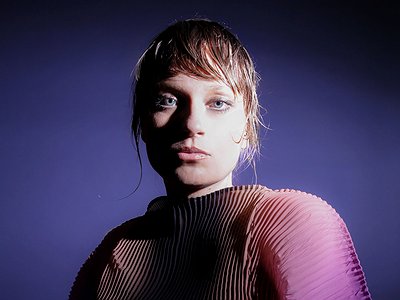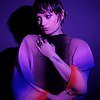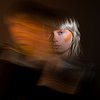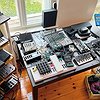Name: Nadia Struiwigh
Nationality: Dutch
Occupation: Producer, composer, DJ
Current Release: Nadia Struiwigh's new album Birds of Paradise is out via Dekmantel. About that release, Nadia says: "It means so much to me. It has that 90s influences and I hope I can bring a story to people and create a new dimension. I would love it if people could feel the music and dive into it."
Recommendations: My first recommendation is to look for a book about self development and vulnerability. The more you can be vulnerable, the more you'll get closer to your soul and can unlock like different rooms for your music.
Eckhart Tolle's The Power of Now is also a book that taught me a lot about living in the moment. And not thinking too much about goals or about the past, but really experiencing gratitude for what is here right now.
I'm quite philosophical, I would say, and I think a lot about life, about how can I be a better human. So I think those kinds of books are just really, really, really important.
If you enjoyed this Nadia Struiwigh interview and would like to stay up to date on her music, visit her on Instagram, Facebook, twitter, and Soundcloud.
Do you think that some of your earliest musical experiences planted a seed for your interest in production and technology?
Yes, definitely. When I was younger, my dad was always very much into technology. We had a lot of gadgets at home and a lot of gaming stuff. And he loved it. He was working for a company which made internal technology for LCD screens and came home with chips. I already knew then that this was something I was really interested in - how it is connected, how everything is wired. Every chain you make has a different kind of outcome. I found that so interesting.
In terms of musical influences … My heroes were Boards of Canada or Aphex Twin, or Klaus Schulze or Jean-Michel Jarre, you know, all the synth heroes … I didn't even know anything about this music. I was listening to rock, pop, just radio stuff. The only thing is that I remember is that my dad and my mom were listening to a lot of new age kind of music.
My mom loved Enya, for example, my dad was listening to Pink Floyd and Genesis, Dire Straits, and, you know, pretty cool kind of vibey and soulful music, I would say.
[Read our Jean-Michel Jarre interview]
[Read our Steve Hackett of Genesis interview]
[Read our Alan Clark of Dire Straits interview]
But in all honesty, my interest in music just came out of a sort of expression I have, it's not really related to anything. Also, when I listen to my first productions, they sound really the same as after knowing about all these great artists, you know. So it is really an internal language.
What were your first active steps with music technology and how would you rate the gains made through experience? Can one train learn being an artist producer?
That's a hard question because it was not an active step I made. I was just always a big raver. I was dancing everywhere, I was picking up so many different vibes and energies.
Using the tools for production and DJing was really a normal thing for me. I really love that I now have more possibilities to loop things now than in the CD era and that's totally my thing. I love gear because I can make all these different connections.
It was just a natural movement for me.
Were/are you interested in the history of production and recording? If so, which events, albums, artists, or insights stand out for you?
When I was younger I was a fan of Coldplay – like, a fan. And I love that kind of band vibe. And they were still a small band during that time. It was a sort of music with riffs and very clear rhythms and I feel that's very much how I still operate today. I just love clarity and really snappy synth leads. Although I do love totally deconstructed rhythms as well.
But everything comes out of my own soul. To my mind, there is not one specific thing from history which triggered me. But if we talk about synthesis, Jean-Michel Jarre, or Bob Moog and all these artists are true heroes to me. They crafted a way of expressing themselves via electronic music other than acoustic instruments. I think that inspired me, the most.
[Read our feature on the Moog DFAM]
[Read our feature on the Moog Modular]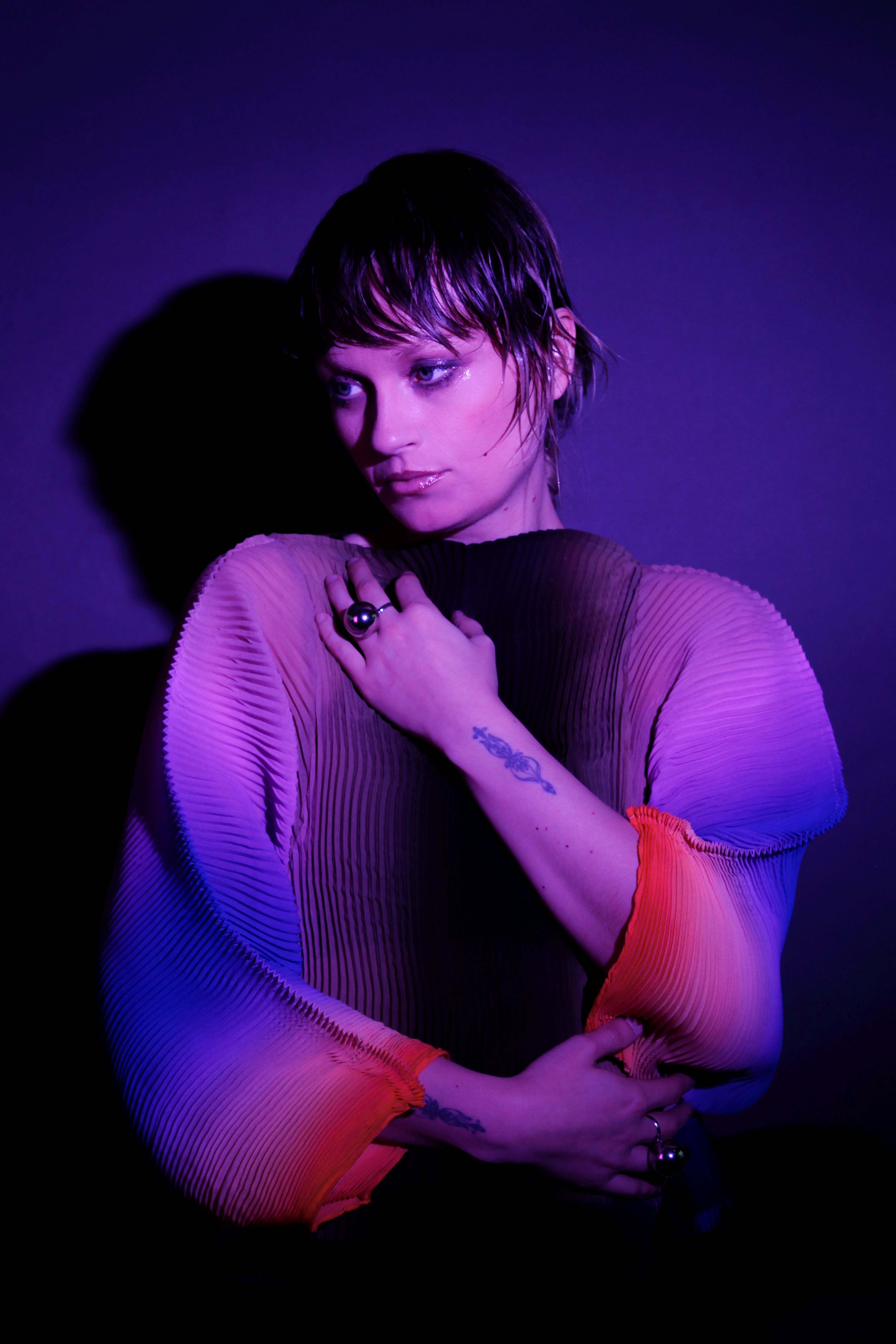
Nadia Struiwigh Interview Image by Palma Llopis
Making music, in the beginning, is often playful and about discovery. How do you retain a sense of playfulness and how do you still draw surprises from tools, approaches, and musical forms you may be very familiar with?
It's funny because I'm now also a music coach for a few years. And when I see the first steps the people I work with are in, it sort of brings me back to exploring again - it's sort of really funny how that works.
I do have many music toys, and there is never an end … it's still very much playful. I don't think it will ever become professional for me. Every time I make music, it's something new. It's a new diary entry and I can do whatever I want. I think it's just how my brain is wired.
For your own creativity, what is the balance and relative importance between what you learned from teachers, tutorials and other producers on the one hand – and what you discovered, understood, and achieved yourself? What are examples for both of these?
As I said already, I learn so much from my students. Even though they don't realise it, they inspire me a lot. But other than that, I like to discover the connections myself. For me the magic gets lost when I watch tutorials, or when I watch manuals. I just want to find my own way of doing things, how my brain connects with a device.
That is how I make music. It's not because I learned a tool, or I learn how things work. No, it's because I just played with it.
To me, music is also about not thinking about any outcome and just seeing what works for you. Some will ask: “Have you seen that tutorial?” No. I've seen my soul and my insight and how I'm programmed and how it works with the device I have in front of me.
How and for what reasons has your music set-up evolved over the years and what are currently some of the most important pieces of gear and software for you?
It has expanded massively. I think that is because I feel very much at ease around music equipment. It makes me feel very comfortable. I can always express my needs. If I'm away from my studio for too long, I become a bit weird.
I do love the multiple options you can have. Maybe you want to play with samples. Or maybe you're very creative and you want to dive into moulding stuff, and mapping things. There are so many different creative forms in terms of music equipment that I want to explore them all and make them somehow in my way organic sounding and interesting. This is one of the most important things of working with these devices: to find to find their magic.
Nadia Struiwigh Interview Image by Palma Llopis
One of my favourite pieces for ages has been the Korg Electribe. It's one of my favourite drum groove boxes. It just has everything I need to make music and it has the right sound. It has that crunchiness and I can still create some pad sounds in it. I also really love Machine. I very much love playing with samples these days and creating cool drum patterns and I have the standalone version of it, so I can take it wherever I go.
And then there are so many things I still need to discover. For example, the Blofeld is a really good piece of equipment, but I haven't found the time for it yet. And there's a really cool MIDI controller for the Jupiter 8. It's from Sound Force and it's the SFC-8, a really cool controller. You can also use it just to map things in Ableton, for example, and adopt for Doepfer Dark Energy. Number two, mark two.
So that was for me one of my first synths, and I still love it. Each day I can play with it and it's just amazing. I learned the basics of synthesis with it.
Have there been technologies which have profoundly influenced, changed or questioned the way you make music?
I guess in these days AI can allow us to emulate ourselves, which is quite scary at the same time. But I do think this will be a massive change in making music.
But honestly, I will always prefer an analogue vibe. Everything I'm doing feels very much from the source. This is why I also really love my little little modular.
What really changed me was the Moog sub 37. It taught me how everything is sort of laid out and mapped out with subtractive synthesis.
Yann Tiersen, in a surprising statement, told me: "I feel more sincere with electronic instruments [than acoustic ones]." Is that something you can relate to?
I think they both have their charm. I think acoustic instruments bring an element of warmth that I love in my music. But I've tried to emulate it with electronic instruments. We now have so many emulations out there. You can even emulateall metallic sounds these days. The only thing is with synthesis is that it comes from a signal, an electronic impulse. Which makes it a little bit more sci fi.
I must be honest and admit, though, that I don't have any acoustic instruments in my studio.
From the earliest sketches to the finished piece, what does your current production workflow/process look like?
Sometimes I feel like jamming. And then I'll record myself and later on, rearrange a new track in Ableton. So it's always a combination.
I want to reuse samples I created or I want to reuse plugins. It glues everything together better because it has a sort of similar timbre.
I first check what I feel like in terms of equipment and put it on my desk. And then I will just try to make a beat or create a sort of pad. And then I just place sound on sound on top of each other. And then there's post production, of course.
How does your way of working with sound look like? Do you find using presets lazy?
It's so funny, because so many times I heard people saying, “Oh, you can't use samples, you can't use presets.” I don't think that's correct. I think you should be able to do whatever you want, as long as you use it in a unique way or in a cool composition. It's about the story you can put out because that's the hardest part. How do you create a full story that people really understand? For me, it's not about: “Hey, I created a hi-hat from scratch.”
I do always invite my students to ask themselves: “You created a track with samples. But can you now also remake this using just your own stuff? I do believe you learn a lot from making a sound or a really cool pad or a melody from scratch, because you can do it in your own way and express your own character.
What, to you, are the respective benefits of solo work and collaborations and do you often feel lonely in the studio? Can machines act as collaborators to you?
Honestly, I am so open regards to this. But I would say I'm a solo creator first, because I have a diary and I want to put it out. Otherwise, I create a story together with someone and that doesn't always reflect the feeling I have.
But I will say that collaborations make me evolve and also make me see other things. It's so fun as well, it's maybe less serious. You can really laugh about it and create a unique sound from two different sounds.
This year I said 2024 will be the year that I'll collaborate way more. Because I feel like the stories I wanted to tell are out now. Of course, I will still create solo projects, but I feel like I have the space and openness to work with other people.
I will also say my machines are my best friends. They're awesome. 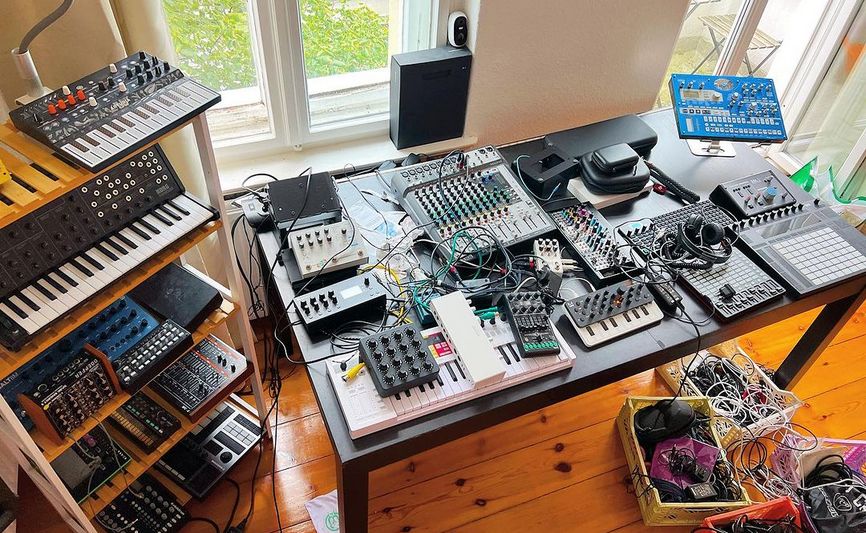
Nadia Struiwigh Equipment Image (c) the artist
If you could make a wish for the future directly to a product developer at a Hard- or Software company – what are developments in tools/instruments you would like to see and hear?
I think there are still a lot of possibilities with granular synthesis, granular options, effects, or even already baked into a synth, create a full synth … But then it will be more about how you can place things in different times and create layers of synths and create even a whole spacing moment out of it – so that you could put snippets into space and time. That would be useful. Right now, it's mostly sample based, and I just want to have it as a synth, basically.
I think it would be very cool to have little bit more experimental stuff. I miss that. I miss that really experimental stuff.
Late producer SOPHIE said: “You have the possibility with electronic music to generate any texture, and any sound. So why would any musician want to limit themselves?” What's your take on that and the relevance of limitations in your set-up and process?
There are no limitations. If you're going to limit yourself, you will limit your soul. But we are made here to expand. We are here to discover who we are. And this is why we learn lessons all the time. So we should not unlearn things, we should learn things.
You can do anything you want with electronic music. Everything is made out of material, right? Every material has a frequency. So every frequency has a sound, or a WAV file or whatever waveform. So in this way, we're already doing it. We already making things with music all the time.



